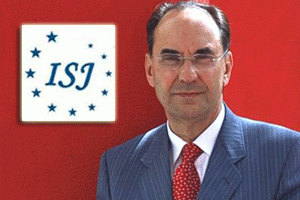Iran: Resistance Summit is Opportunity to Make Iranian Voices Central to Western Policy

Written by
Alejo Vidal Quadras
Maryam Rajavi, the President-elect of the National Council of Resistance of Iran
By: Alejo Vidal-Quadras
This Friday marks the annual gathering of Iranian expatriates organized by the National Council of Resistance of Iran. From its inception in 2004 until 2018, the event took place near Paris each summer.
In 2019, it was instead held at the recently completed compound in Albania that houses members of the NCRI’s main constituent group, the People’s Mojahedin Organization of Iran (PMOI-MEK). This year, because of the coronavirus pandemic, it was not possible to organize an event according to the same protocol. But it will go forward all the same, with participants gathering in small groups in their home countries or tapping into the livestream from their own homes.
The live stream event will take place in more than 30,000 different locations, spanning 104 countries, with over 1000 dignitaries and personalities attending the summit. In recent years, the in-person gathering had developed a reputation for bringing together over 100,000 Iranian expatriates from throughout the world. This year, the socially distanced alternative to that event will boast even greater overall participation, not just among expatriates but also among their political supporters. Ideally, this will lead to greater dissemination of the NCRI’s message within Western policy circles and ultimately to the adoption of strategies that bolster the Iranian people’s fight for freedom and democracy.
Last November, Iranians in roughly 200 localities staged a sort of sequel to the previous year’s uprising. The mullahs responded with even more brutal repression, killing an estimated 1,500 peaceful protesters and arresting thousands of others. However, less than two months later, the Iranian people were back out in the streets in over a dozen provinces, protesting the attempted cover-up of a missile strike that destroyed a commercial airliner.
It is difficult to imagine that Iranians would have continued protesting in the face of such violent backlash if they did not sense a high degree of vulnerability in the clerical regime. It is also hard to imagine that they would have recognized quite so much weakness if the regime was not under pressure from the outside, as well as from within. By contrast, it is fairly easy to imagine how much greater that vulnerability would seem if the pressure was coming from a unified Western policy apparatus and not just from the United States.
That is exactly what the Iranian regime’s critics should anticipate emerging from Friday’s “Free Iran Global Summit.” The organizers have described that event as a venue for outlining “concrete policy options” for lawmakers from each of the countries with delegates scheduled for virtual attendance. Some of those options will be presented by the delegates themselves, while other suggestions will be offered by Mrs. Maryam Rajavi, the President-elect of the NCRI. And where there is overlap among these policy recommendations, observers should be expected to recognize the potential for meaningful collaboration between foreign governments and the Iranian people.
Such collaboration need not involve the sacrifice of blood or treasure from the US or any other Western nation. Indeed, the NCRI has long insisted that a change of government in Tehran must come at the hands of the Iranian people themselves.
The vast majority of Iran’s population has been calling out for that alternative since shortly after the 1979 revolution. Even supporters of that movement tended to envision it leading to a system based on popular sovereignty, not to the exchange of one form of dictatorship for another. This fact goes sadly unrecognized by many Western observers. Unfortunately, it is an example of the sort of ignorance that could be easily cured by simply listening to the voices of the Iranian people, as represented to the world by their popular Resistance.
Good policy is based on complete knowledge and although Western governments may have a fair sense of what has been going on in Iran during recent years, their knowledge is far from complete as long as it fails to include the perspective of those most responsible for and most affected by all that has occurred.
Dr. Alejo Vidal-Quadras

